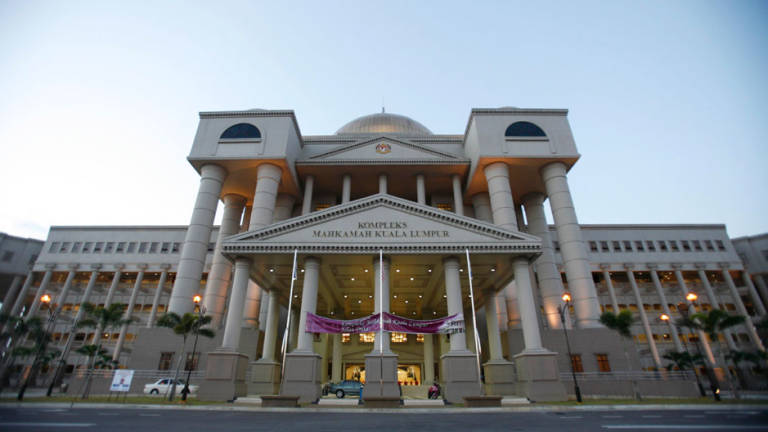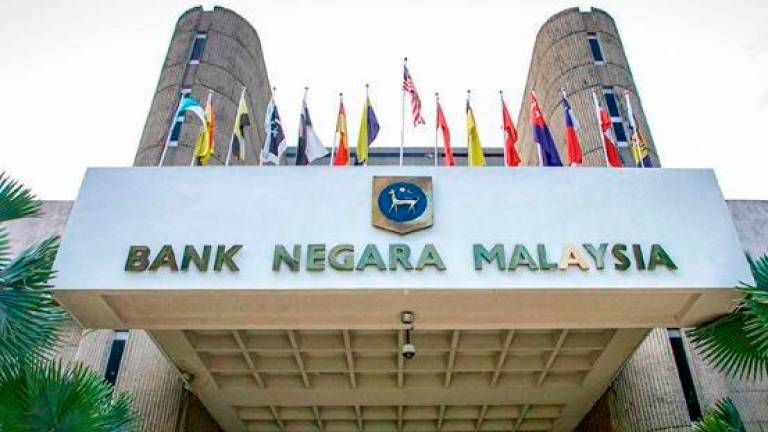PUTRAJAYA: A father of an illegitimate Muslim child cannot register his personal name under the Births and Deaths Registration Act 1957 (BDRA) for his child to assume his name instead of ‘Abdullah’ as the provision only allows for those with surnames, the Federal Court heard.
Senior federal counsel Suzana Atan submitted before the seven-member bench that Section 13A of the BDRA was not applicable to Malays or Hindus as they do not have surnames.
“The application to register the father’s name in this case is “M.E”. It is not a surname. It is the father’s name,“ she said in the appeal by the National Registration Department (NRD), its director-general and the government which was being heard afresh by the court.
The NRD, its director-general and the government were appealing against the appellate court ruling in May 2017 that a Muslim child conceived out of wedlock could bear his or her father’s name instead of “Abdullah”.
Suzana, who is appearing for the appellants, said Malays do not have surnames and they carry their father’s name, adding that Section 13A registrations only apply to Chinese and Eurasians communities who have surnames.
She said surname refers to family name and hereditary name which were distinct from a personal name.
“The Court of Appeal in holding that the child can take his father’s name pursuant to Section 13A has erred in fact and in law,“ she said.
Suzana also argued that it was also reasonable for the director-general of NRD to make reference to the National Fatwa Committee when registering the birth of a Muslim child.
Lawyer K. Shanmuga submitted that section 13A applies to all Malaysians and the NRD was bound by statute to include the name of the father as the patronymic surname of the child.
“It does not state that different provisions apply to Muslim children or to Muslim parents,“ he said.
Shanmuga pointed out that Islamic law was not consistent in relation to the naming conventions of children deemed illegitimate as he said, for example, in Perlis, the position was that illegitimate children could still bear the father’s name.
He said NRD did not have power under the law to impose “Abdullah” on to the name of the child.
Lawyer Datuk Sulaiman Abdullah for the Johor Islamic Religious Council submitted that for Muslims, the best interest of the child and his parents was to conform with the Islamic law and everything else was secondary.
He said the matter should be heard by the Syariah Court and not the Civil Court as it involved legitimacy of the child.
He said it was in the best interest of the nation that Islamic law is upheld and not done away with by way of the decision of the Court of Appeal.
The child was born less than six months after the parents’ marriage, which is seen as being illegitimate under Syariah Law.
The parents (whose identities had been withheld) applied to the NRD under section 13 of the BDRA to have the father’s name on their child’s birth certificate but the NRD refused to replace it (bin Abdullah) with the father’s name on grounds that the child was illegitimate despite the application being made.
The parents then filed a judicial review application at the High Court but it was dismissed on Aug 4, 2016 but the Court of Appeal reversed the decision, allowing their judicial review to compel the NRD director-general to replace the child’s surname ‘Abdullah’ with the name of the child’s father in the birth certificate.
Chief Judge of Malaya Tan Sri Azahar Mohamed who led the Federal Court bench reserved the court’s decision as he said they needed time to deliberate.
The other judges were Chief Judge of Sabah and Sarawak Datuk Seri David Wong Dak Wah and Federal Court judges Datuk Rohana Yusuf, Datuk Setia Mohd Zawawi Salleh, Datuk Abang Iskandar Abang Hashim, Tan Sri Idrus Harun and Datuk Nallini Pathmanathan.
Earlier, the bench dismissed the Johor Islamic Religious Council’s application for the one remaining judge Court of Appeal President Tan Sri Ahmad Maarop from the previous five-member bench, who had earlier heard the appeal, to deliver the judgment in the appeal. The other judges had retired and one had resigned.
Section 78 of the Courts of Judicature Act 1964 states that there must be two remaining judges to deliver the judgment. - Bernama














